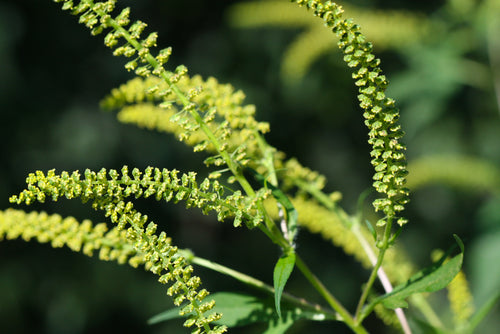
Jun 06 , 2017
Some Simple Solutions to Help Combat Summer Allergies
If you are one of the millions of people with seasonal allergies, you may be finding yourself wandering indoors more often than your friends and family. Allergens like ragweed and pollen can ruin a nice day. How can you keep yourself from going nuts and sneezing like a maniac all summer long?
Luckily, there are some great and natural ways to protect yourself this season. You dont necessarily have to hide in a bubble or get lots of expensive shots or treatments. All you need are some preventative measures and to keep a close eye on the daily pollen count to keep your sinuses clear. With the right plan in place, you can join in the summer fun alongside everyone else.
New Air Filters
First, you must make the indoors pollen-proof. Ragweed, a very common plant in North America that is packed with pollen, can be the cause of allergic rhinitis or hay fever. That means a runny nose, itchy throat, and constant sneezing.
So, keep your house free of this annoying allergen by changing air filters every six months, or more often if required. Clean air filters, along with keeping your windows and doors closed, will help clean the air in your home so you can have a space free of allergic reactions.
Clean air in your home can also protect you from pollutants if you live in a more populated area like a big city. Everyone in your family will breathe a little easier once your filters are in place and up to date, so dont skimp on this home essential.
Antihistamines
Antihistamines, or allergy pills, work by stopping the release of chemicals that cause sinuses to go haywire when the air has a high pollen count. They help with inflammation, stop a runny nose, and, essentially, help calm everything down. If your allergies are not too severe, you may do fine with an over-the-counter medication.
If you suffer from a more severe level of reaction, you may want to consult an allergist. These doctors specialize in people whose bodies are sensitive to different materials or particles in the air and can help you find the best medication for your needs.
Acupuncture
Many people have turned to the ancient Chinese art of acupuncture to help keep their allergies at bay. The practice uses points, or specific areas on the surface of the skin, to treat problems in the body. Needles are inserted gently into the prescribed points while the patient lies on a treatment table and allows the acupuncture to take effect. A session usually lasts anywhere from 30 minutes to an hour.
You can find a reputable acupuncturist in your area by recommendation or through online directories. Or, you can try a little round of alternative treatment on your own with an acupressure practice. Like acupuncture, acupressure focuses on specific points in the body, but it doesnt use any needles. This treatment takes about six minutes and helps to calm allergic reactions down significantly.
Herbs
While you should always consult with a doctor before starting a new regimen of pills, many herbs readily available in herbal supplement stores or gardening centers may help with your allergies.
A root extract called butterbur has been used for hundreds of years to treat hay fever. Doctors are not always quick to recommend it, as the actual workings of the root are not fully understood, but a lot of professionals are open to it as an antihistamine.
Other herbs you may want to try are licorice root and eyebright. Licorice extract helps raise the level of steroids in your body to reduce mucus and coughing. Eyebright got its name from helping relieve itchy, watery eyes, and runny noses. Again, talk to a doctor before giving it a try.
Dietary Changes
It feels so wrong to write this but, in some cases, certain fruits and vegetables may add to the problem for allergy sufferers. Many stone fruits, such as apples, pears, or apricots, have been named as foods that exacerbate the allergy symptoms. Bananas and melons appear to be culprits as well. If these fruits are making regular appearances on your table, keep a food diary to see if you notice an increase in symptoms after you eat them.
Vegetables like carrots, bell pepper, and even Swiss chard have all been found to make sneezing and coughing worse for many allergy sufferers. An allergist can help you figure out which foods you need to cut out of your diet or just new ways to cook your favorites so they dont cause you any harm.
Salt Water
A more direct way to treat your sinuses is with what is known as a neti pot, or a nasal irrigation system, that rinses out the inner workings of your nose with warm, lightly salted water. Those who irrigate daily or any time theyre feeling allergic feel that the internal cleanse helps their bodies eliminate allergens and gets them breathing normally again.
You can get several versions of this nose-cleaning product. Everything, from actual teapots to squeeze bottles that shoot water up your nose, is available online and in pharmacies. Because the inside of your nose is not a clear, straight path, but rather a kind of fleur-de-lis branching out into little pathways in all directions, blowing your nose may not be enough.
The warm salt water in a neti pot can help get a treatment into all the tiny, hard-to-reach spots you cant reach on your own. It takes some getting used to, but neti pots can help with short-term relief, and daily use may help control your allergic reactions.


